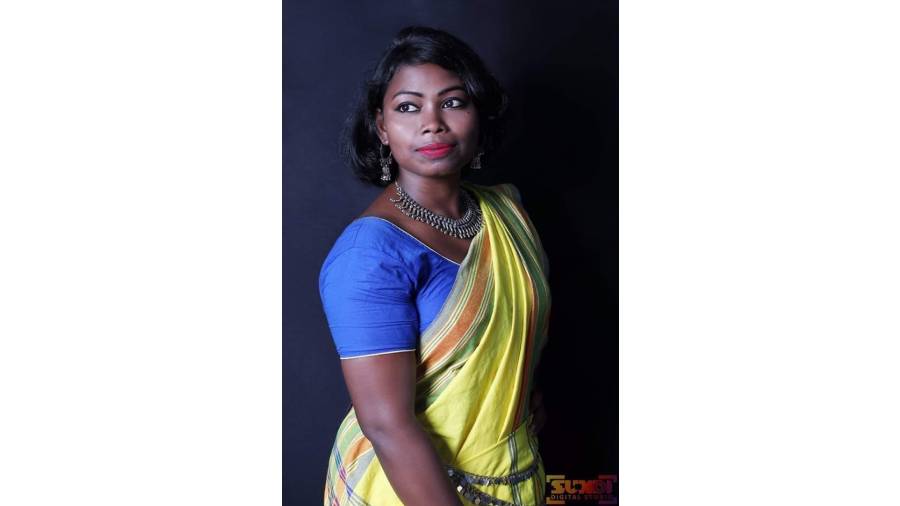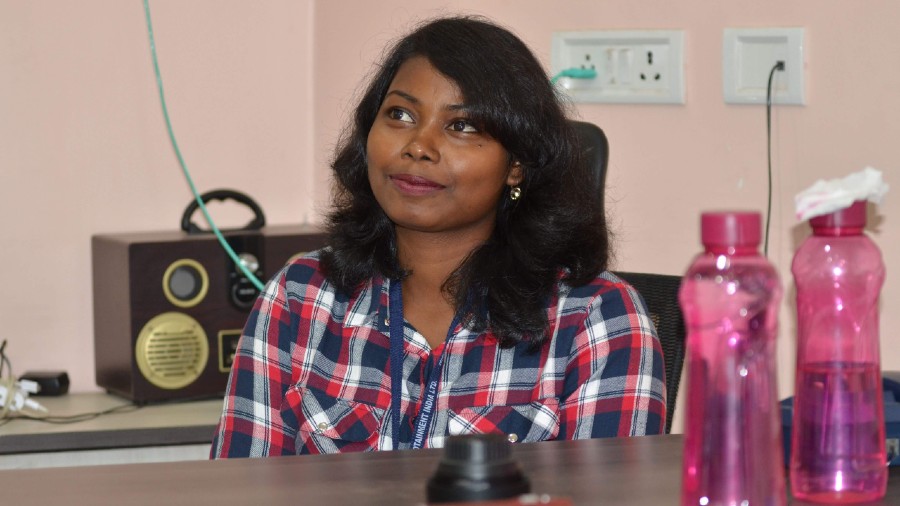Monthly Archives: April 2021
30 a
29 b
29 a
28 b
28 a
Anubhav Mukherjee, Founder of “The Kolkata Buzz” shares how he fell in love with City of Joy

Kolkata, the City of Bongs that has stood the test of time, has much to offer to anyone who has been or lived there. Just when you enter the place you feel a kind of warmth that you may not have felt anywhere else. This applies to anyone and everyone irrespective of where they come from. If you have an open heart or are trying to open your heart, this is the city where you should be.
Despite the political unrest and slow pacing developments, the City of Joy still attracts almost everyone who visits Bengal or India at large.
One such person is Anubhav Mukherjee, founder of The Kolkata Buzz who came to the city from Chhattisgarh. Though he intended to learn filmmaking, the city’s charisma turned him into a wanderer who would try and capture the bursting streets on his camera and post it on Facebook. He had no idea that people will fall in love with his content and that he would create an entire platform based on Kolkata.
“When I came to Kolkata I was an outsider despite being a Bengali. So, to explore the city, I would often set out on foot and take pictures and videos. I found a lot of subjects to capture that looked ordinary but had a Bong connection. Then I started to post them on Facebook. To my surprise, it was received well by the audience and thus was born, ‘The Kolkata Buzz’ “, shares Anubhav.
In 2016 during Durga Pujo, the page was all over the place and this made Mukherjee pursue a full-time career in digital media. And all that he could do had only one USP – Kolkata and Bengali culture.
“Kolkata has been the soul of all our content. When I started the platform there was no one else who was so focused on Bengalis. So, I always made sure that my content was attractive and connected with what the public loved and I guess that is what has clicked,” explains Mukherjee.
Initially, the page had all original pictures taken by Anubhav but gradually he found and showcased pictures and quotes by several other Bengalis on his page.
“While I was working on my page, I started to spot others who were posting some great content on our theme. Although my growth mattered to me, I wanted to showcase what others tried to narrate in their posts and give them a shout-out,” says the platform’s founder.
Also, Anubhav felt the need to bring some changes to the work culture in Kolkata. Having studied the market, he knew the worth of digital and wished people to join him. So, he started pooling freelancers and professionals who now work under him to make the page even more amazing.
“I wish that Kolkata’s youth is directed towards the new age, shedding the traditional opportunities. There’s a lot to do out there other than what we are taught to aim as kids. Also, the city needs to build its startup culture and professionalism. I am doing my part and also trying to inspire my colleagues,” said Anubhav.
On today’s date, The Kolkata Buzz has 215k Followers on Instagram, and 1 Million + on Facebook. They are also into videos and are starting a website. The page’s success propelled Anubhav to start his agency – Buzzaffair ventures (OPC) Pvt. Ltd. The company is into brands, Influencer marketing, event promotions, and social media management. They have covered 1000+ brands till now.
www.facebook.com/thekolkatabuzz
source: http://www.deccanherald.com / Deccan Herald / Home> Brandspot> PR Spot / April 27th, 2021
26 b
26 a
The Radio Star
One little Santhal girl was sent away to the city for a better life. Years later, she returned to her roots, astride air waves.

Shikha Mandi was barely four years old when she came to Calcutta from Jhargram’s Belpahari village. Her parents, both farmers, sent her to the city in the hope that she would get a better education, be safer than in a region routinely in the news for Maoist activity.
“My paternal uncle lived in north Calcutta’s Ariadaha with his family. I was told that my elder sister and I were going for a vacation. I was very eager to see a big city. The next thing I knew was that we would be living with them and not return to the village,” recalls Mandi.
Shifting from a village wasn’t easy, not in the least because of the language switch. Mandi, now 27, grew up in Calcutta among Bengalis but retained a love for her mother language, Santhali. Santhals are the largest tribal community in Bengal and Santhali is spoken by over 70 lakh people across Bengal, Jharkhand, Odisha, Bihar and Assam.
At the city school, Mandi had to speak in Bengali. She says, “In our village we barely knew Bengali. Even in Calcutta, we would speak Santhali at home. But to fit in with the rest I had to prioritise another language over my own.”
But bigger struggles lay ahead. Mandi changed school when she was in Class V. She says, “Nobody wanted to be friends with me at Ariadaha Sarbamangala Balika Vidyalaya. I looked different and I was from a different community. They didn’t know much about Santhals. But they would associate tribals with certain things. They would say, ‘Look at her, even a buffalo is more fair-complexioned in comparison’ or ask ‘Do your people wear clothes made of leaves and eat raw meat?’ I would feel hurt. I kept thinking if only I was like them, I wouldn’t have to face all this.”
In hindsight, she wishes she had made a clean breast of her feelings to someone. She says, “My chacha would tell me we are different from the rest but we should not pay attention to anyone who slanders us. He is a government schoolteacher and he too had his fair share of struggles as a Santhal. Now when I talk about my experiences, I hear others say that they too have gone through similar things in life, because of their tribal identity.”
College was comparatively better, but it was difficult to be comfortable in one’s own skin, especially when compounded with her gender, it became an othering factor. “In the city, people seemed to believe that girls should be pretty and fair only,” says Mandi, and for the first time I hear her soft voice break into a laugh.
When Mandi arrived in Calcutta for the first time, she found a friend in the radio. Over the years this friendship endured. Every evening, there would be a Santhali programme on Akashvani and Mandi listened devoutly. “It had Santhali songs and chat shows. Listening to them was my home away from home. It made me miss my village and parents less,” she says.
“I would wonder what it might be to become someone like those people inside the radio — as I imagined them to be. I didn’t even know how it worked, what one needs to do to be on air, but I knew that I wanted to grow up and talk on the radio,” Mandi says.
After school, while the other kids played ghar-ghar, Mandi would pretend to be a news reader and a radio jockey. She would sing Santhali songs too. Over a call, she hums a song she says was her favourite: Hane biti Ganga gada dak do biti nel me, bai bai bai te, bai bai bai te atu kana. She says the song is by Lal Susant Sorenji from Dumka in Jharkhand. “It is a very old song and I’ve grown up listening to it.”
But when she spoke to her parents about her ambition, it didn’t go well. Mandi continues, “My parents were clear they couldn’t afford to spend much on me and insisted I complete my education and get a government job.”
After her school-leaving exams, Mandi joined an Industrial Training Institute in south Calcutta and after training, started preparing for an apprenticeship exam for Garden Reach Shipbuilding and Engineers Ltd.
And then, the tide turned and her ship changed direction.
Mandi saw an advertisement for a radio jockey for an upcoming community radio station in her hometown, Jhargram. Radio Milan 90.4 was starting a Santhali programme and she put in an application. She says, “My parents were not pleased with my decision.” Yet she appeared for the interview, gave a voice test and finally took up the job in December 2017.
Shikha Mandi thus became one of India’s first tribal radio jockeys, commanding the attention of thousands of listeners through her evening talk show Johar Jhargram.

The programme was all about making Santhals feel connected. Says Mandi, “Everyone wanted to listen to their language on radio and television, it doesn’t happen very often for us. So people were very excited.” But years of living in Calcutta had had its impact on her fluency in Santhali. She adds, “People complained that I used Bengali words.”
Mandi spent the next many months brushing up her Santhali. She learnt the Ol Chiki script, re-acquainted herself with tribal customs, culture, rituals, songs. She started reading up about ground realities of Santhals. She would scour around for socially relevant topics for her show. “Every day I’d choose a new topic that people could relate to. I would invite guests for expert opinions on these topics. I even got Santhali callers on my show from other cities. There were conversations about love, friendship, tragedy, everyday struggles of being a Santhal, it was all about us,” she says. Mandi is soft-spoken, but I sense a firmness in her tone.
Mandi wrote her own script and made playlists. Broad themes were festivals, religion and gender, but everything was in Santhali. There was no place for any other language. If someone called in with a request for a Santhali song but spoke in Bengali, Mandi urged the caller to speak in Santhali, assuring that it was okay not to be entirely fluent. Soon from being a daily hour-long show, her show became so popular that it became a three-hour show.
Says Mandi, “I didn’t just want to become a radio jockey to indulge some personal aspiration, I wanted to do something for my people, keep the Santhali language and culture alive among the youth. The pride for the language is fading among people of my generation and those younger to me. When they move to the city, they pretend they don’t know the language and don’t speak it even if they do know it. I wanted to change that.”
When Shikha arrived in Calcutta for the first time, she found a friend in the radio… After school, while the other kids played ghar-ghar, she would pretend to be a newsreader and radio jockey–
Sometime during the pandemic, Mandi quit her job of a radio jockey. She seems to think that the channel had strayed from its initial commitment. She says, “It wasn’t doing what actual community radio centres do — work with the locals.” These days, Mandi runs her own podcast on Tumdah, an app to discover, stream and share Santhali music.
But from the sound of it, radio continues to be the love of her life. She cannot stop talking about her radio jockey days. She tells me, “I used to love the fact that I could connect with so many people through this medium… I couldn’t reduce anyone’s pain in life but I could always say two words of hope.”
She is sure that this is not the end of RJ Shikha Mandi. She says, “I want to start my own community radio centre where we will involve more tribal people and I am working towards it.”
source: http://www.telegraphindia.com / The Telegraph Online / Home> Culture / by Manasi Shah / April 25th, 2021